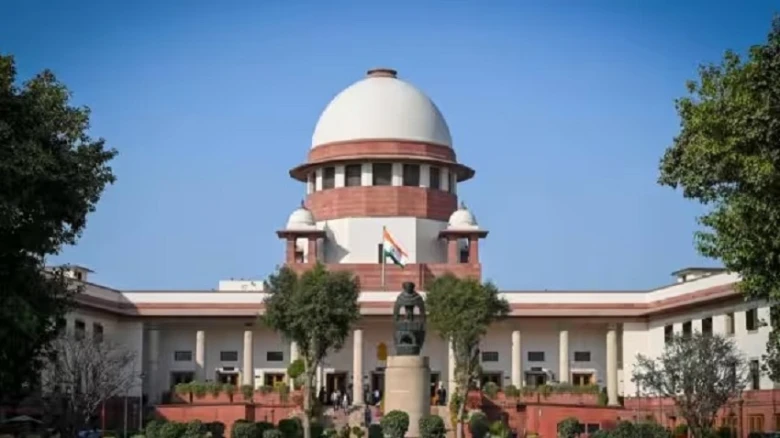In support of the Assam Accord, the clause was added through amendment in 1985.
Digital Desk: On Wednesday, the Supreme Court of India (SC) set the date of October 17 for the hearing of petitions challenging the constitutional validity of Section 6A of the Citizenship Act on October 17.
In support of the Assam Accord, the clause was added through amendment in 1985.
The common compilation in the case created by the nodal counsels needs to be streamlined, according to a five-judge panel that included Chief Justice DY Chandrachud and justices AS Bopanna, MM Sundresh, JB Pardiwala, and Manoj Misra.
The bench stated, "The nodal counsel would make sure that the compilation is in the same manner as the SOP. Within two weeks, the common compilation's soft copy is due. Written submissions shall be filed by October 10."
According to the Supreme Court, the proceedings would be titled "In Re: Section 6A of the Citizenship Act, 1955."
It should be mentioned that on December 17, 2014, the Assam citizenship issue was referred to the five-judge bench. On April 19, 2017, the Supreme Court assembled the panel to hear the case.
Following the 1951 national census, the National Register for Citizens (NRC), a list of Indian citizens containing all pertinent data for their identity, was created for the first time.
The purpose of the NRC in Assam is to identify any illegal immigrants who arrived in the state from Bangladesh after the deadline of March 25, 1971.
The Assam Accord was discussed, and formulated, and categories of immigration were defined in 1985 by the Centre and members of the Assam Movement.
In accordance with Section 6A of the Citizenship Act of 1955 and the guidelines established by the Assam Accord of 1985, the NRC exercise was conducted in Assam.
Section 6A of the Act was introduced to give effect to the Assam Accord. Based on the date of their movement, it offers the foundation for either recognising migrants in Assam as Indian citizens or for expelling them.
Assam residents who arrived from certain countries, including Bangladesh in 1985, on or after January 1, 1966, but before March 25, 1971, are required to register for citizenship under section 18 of the law.
As a result, the clause establishes March 25, 1971, as the deadline for awarding citizenship to Bangladeshi immigrants in Assam. The State of Assam was ordered to update the NRC by the top court in 2013.
Uncertainty over their citizenship arose after 40.07 lakh applications out of 3.29 crores were left off the final draught of the Assam NRC, which was published on July 30, 2018.
Later, the Supreme Court ruled that since this was only a draught, no decisions could be made based on it. The final NRC list, which eliminated 19 lakh people, was published on August 31, 2019.
Assam Sanmilita Mahasangha, a civil society group based in Guwahati, filed a challenge to Section 6A back in 2012, claiming that it is discriminatory, arbitrary, and unlawful in that it sets different cut-off dates for legalising illegal immigrants who entered Assam and the rest of India.
India had a huge influx of migrants as a result of the Bangladesh Liberation War, which resulted in Bangladesh's independence from Pakistan. Migration to India had already started before Bangladesh separated from East Pakistan in 1971.
A treaty for friendship, collaboration, and peace was signed between Bangladesh and India on March 19, 1972.

Leave A Comment